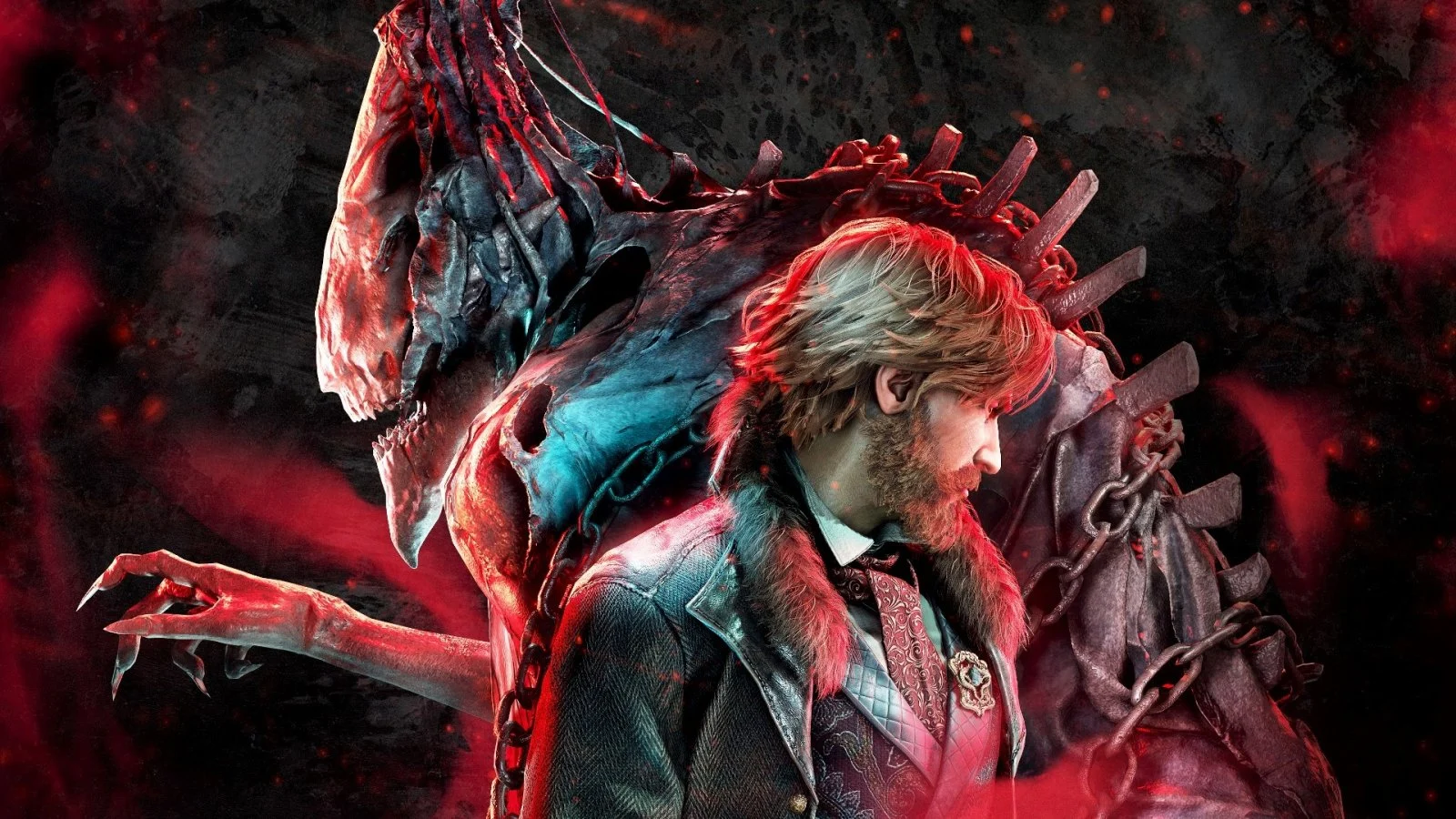Welcome to the world of The Thaumaturge. A story-driven RPG where all your choices and astuteness matter. It has a unique mix of turn-based combat with investigation mechanics. I was able to play the game before launch for this review. Let’s jump into this interesting world to see if it is worth your time or needs to stay in the shadows with the demons.
In this review, I am going to cover:
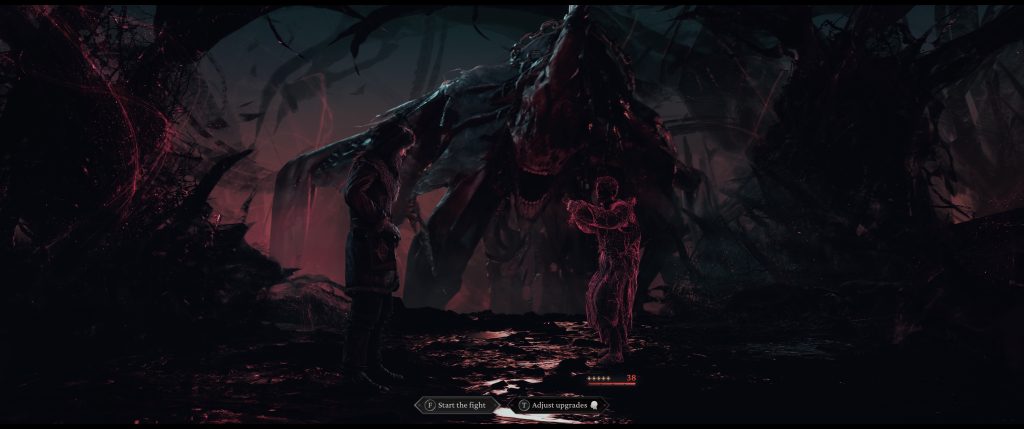
Story
The Thaumaturge takes place in Warsaw in 1905 when it was under the rule of imperial Russia. This was a time of very different views and beliefs. There were Russian soldiers everywhere amongst the Jewish merchants and Polish townspeople. Despite all these differences, the city was still alive and buzzing.
You follow the story of a thaumaturge named Wiktor Szulski. A thaumaturge is someone with the ability to find and use ethereal beings called salutors. Finding them is one thing; taming them is another. Once tamed, salutors can be used to help see emotions tied to items, fight in combat, or even manipulate someone’s mind.
Wiktor has returned to Warsaw over a family matter after being away for nearly 15 years. As you investigate more into your family affairs, you will run into old friends and acquaintances as well as make new ones. You will also find that the whole city seems to be very alive and on edge. One wrong word, and you will end up in a fight with a drunk, a friend, or even some Russian soldiers. How the story unfolds is completely up to you.
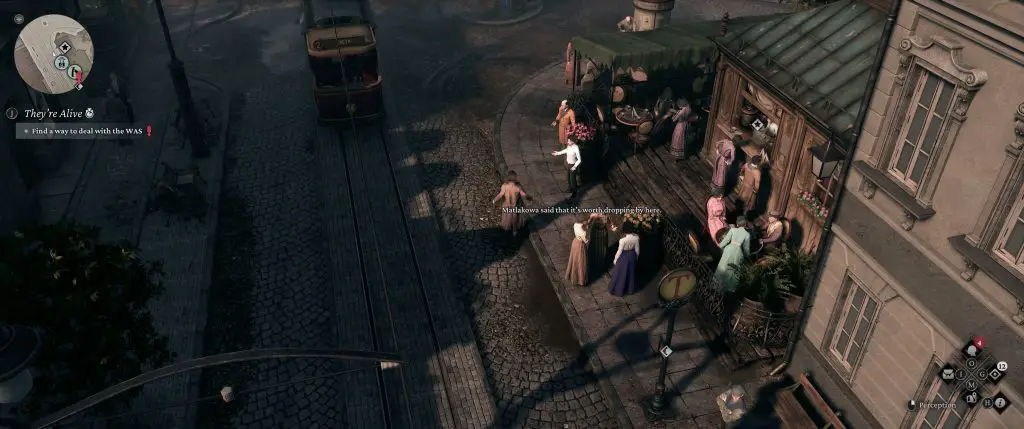
Gameplay
The Thaumaturge is a very story-driven game. Every conversation that you have has choices and can alter the story. Those choices are available based on the previous decisions that you made or things that you discovered. Between story missions, you are free to roam the city of Warsaw. Help out people in need, visit old friends, or even go looking for trouble.
Investigating
A big element in the game is using your powers as a thaumaturge, with the help of your salutors, to boost your awareness. At any time while exploring a location, Wiktor is able to snap his fingers and see points of interest around him. The salutors allow him to see more than just the physical appearance of an item. He can also feel the intent and passion of everything he touches. This gives him valuable insight when finding clues. The insights discovered will open up new options in future conversations.
The Thaumaturge has a nice system while investigating. Not only does it give you a lot of detail about each thing you find, but it also gives you a conclusion. After finding all the clues to a particular case, Wiktor is able to make an observation. This tells the player that they have found all the clues and gives you Wiktor’s final thoughts as a result.
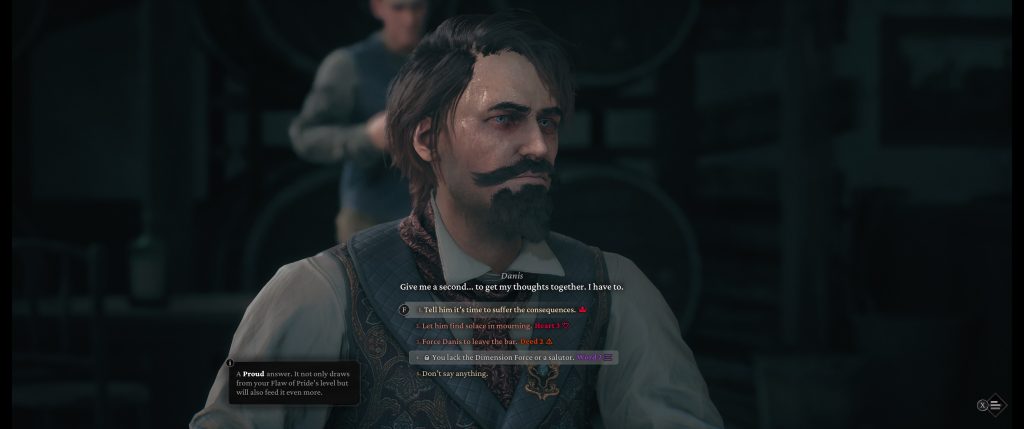
This ability is not just available in certain locations. It can be used while roaming the streets of Warsaw. You can discover interesting side stories or even use it as a guide to your current mission. There are many things to uncover throughout the city. Whether it is a note about a secret meeting or a magazine to inspire the tailor for your new suit, everything that you find adds to your experience.
Leveling
The leveling system in The Thaumaturge felt secondary to the story, and I’m ok with that. To me, there are two types of role-playing games. Some focus on leveling and skill trees to progress through the story. These often make it hard to progress unless the character is at a certain level. Others focus on the story and don’t let the leveling get in the way. These let the player invest in developing the story around the character instead of their skills. The Thaumaturge certainly fits into the second category.
It feels as if everything you do gains your character some amount of experience. This could be from combat, but it also comes from everything else you do. That could be simply reading a signpost notice or conversing with someone on the street. The game definitely encourages you to explore the city and rewards you for it. With the constant amount of experience points being earned, I never had to worry about being too low of a level for any coming challenges.
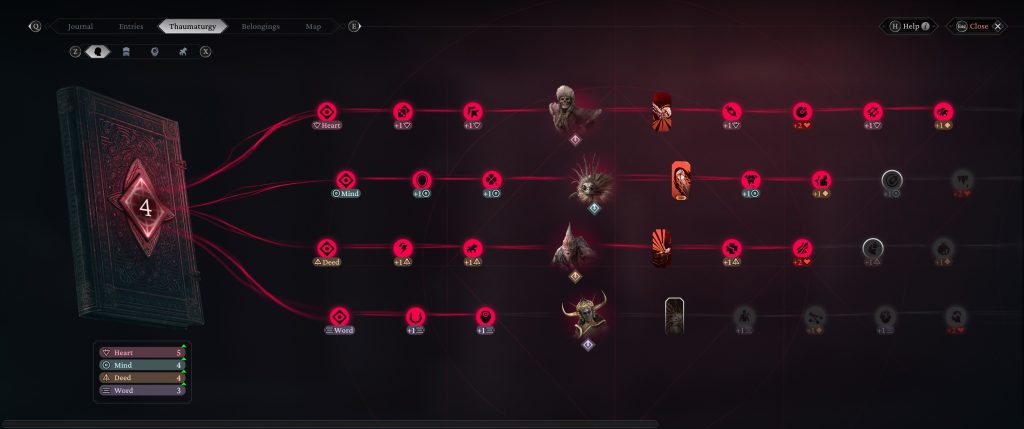
Abilities
As you gain enough experience, Wiktor will level up and gain skill points. These can be used to unlock new skills in one of the four dimensions of Thaumaturgy. Those are Heart, Mind, Deed, and Word.
There are two different types of skills to unlock on the skill tree. The first set of skills are upgrades. These can be attached to your existing combat abilities for additional effects or damage. The second set are additional combat abilities. You can unlock them after taming a salutor in that skill’s dimension. Each focuses on a different element in combat. Such as Mind primarily removes focus, and Deed applies damage over time.
Wiktor’s combat abilities fall into 5 categories. Those are Quick Attacks, Planned Attacks, Damage Over Time, Influences, and Strong Attack. The Strong Attack is the only one that is not available at the start of a fight. It requires the opponent’s focus to be fully depleted before you can use it on them. It is worth going after if the opponent has low focus to begin with though, as the Strong Attack will finish off most enemies.
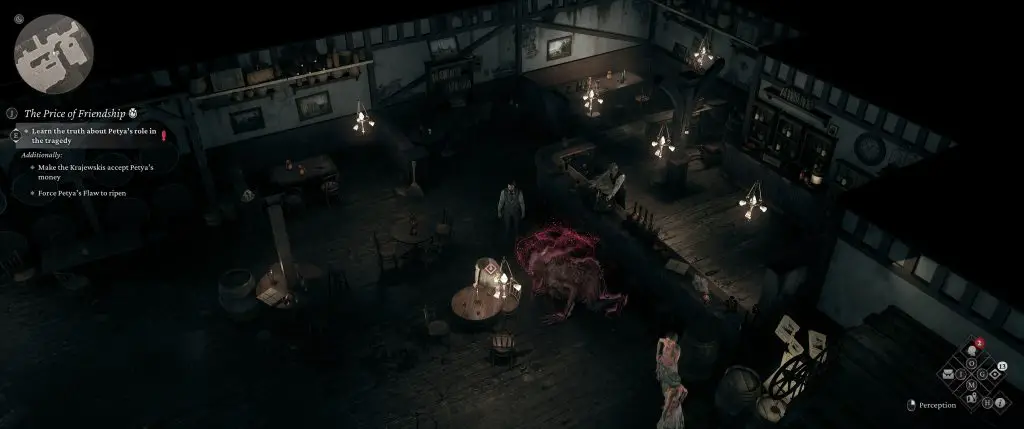
As Wiktor levels up, the 4 other categories will become multi-tiered as you unlock new abilities for each category. For example, the Influences category starts with Diversion (-1 focus) as the first ability. After using it in combat, it will switch to the Distraction (-2 focus) ability. The higher tier abilities also allow for higher level upgrades.
Before each combat, the player has the option to change the upgrades to their various abilities. This is a nice element, as different enemies have different weaknesses. You are also able to unlock additional skills before battle if you have skill points you have not used yet.
Combat
Combat is not the main focus of The Thaumaturge. As I mentioned before, the game is mostly focused on its well-written story. However, that does not mean the combat is lacking. By that, I mean in quality or quantity. It seems like everyone you talk to is itching for a fight.
Before a fight begins, you are able to preview the health and focus of each enemy. They might also have a passive ability that you will be able to see as well. You will always have an option to modify your combat abilities to fit your needs. Then, you can begin the fight.
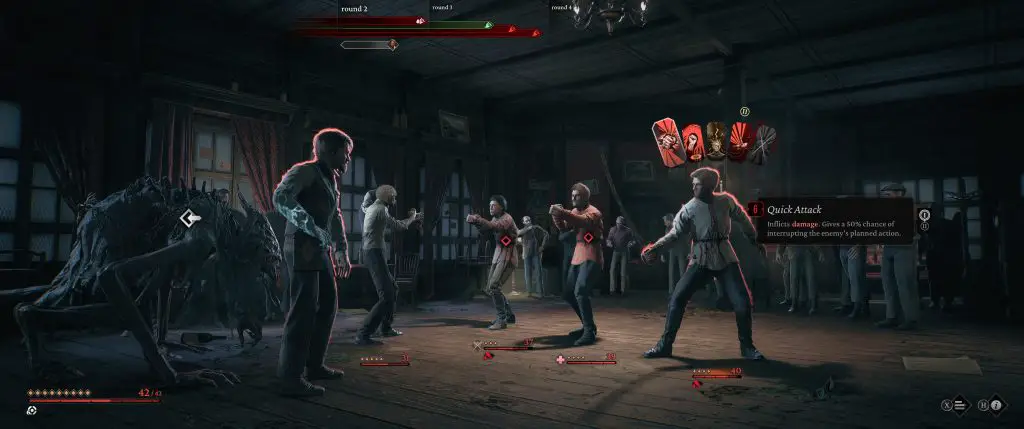
Timeline
Across the top of the screen is where you will find the timeline for the battle. You can view which enemies are attacking first and the details of their attack. When you select an enemy, you will see Wiktor’s combat abilities above their head. The attack will appear in the timeline when you pick one. You will also select which of your salutors will attack. They can attack the same enemy or a different one.
The timeline is something to always keep an eye on. Putting things in the right order between you and your salutors can make a big difference. You always want to keep track of the order the enemies are going in, too. If you want to negate someone’s attack, then you better make sure yours hits first.
Breaking an enemy’s focus will set them up for a big hit from your Strong Attack. It will also negate their current attack. Manipulating the timeline is the key to a successful battle.
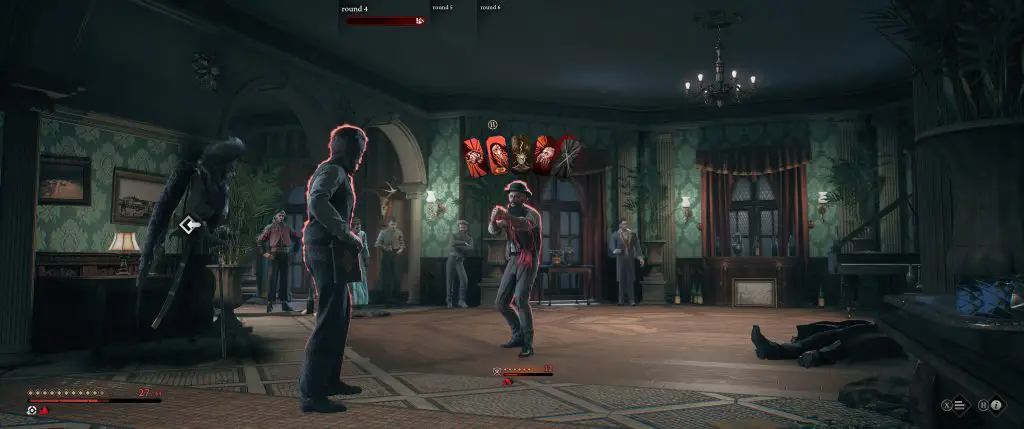
Health
On the bottom left of the screen is where you will find Wiktor’s own health and focus. Most enemies don’t hit as hard, but you seem to always be outnumbered, so the hits can add up quite quickly. Some of the attacks by the salutors can heal Wiktor. However, they do reduce the amount of future heals. Meaning you probably are not going to heal more than a couple times in a battle.
Abilities don’t use up any of Wiktor’s focus points. There are quite a few enemies that will reduce his focus, though. So make sure you keep track of it. If he is out of focus, that leaves him open to all the enemies being able to hit for extra damage.
Both health and focus reset after every battle. This is a nice feature for two reasons. First, it allows for some more strategic freedom in combat. You can decide which hits to take and which to block because you don’t have to worry about healing once the fight is over. This prevents the combat from feeling too puzzly. Second, this allows the player to get back to the story after the combat is over. It prevents the story from getting disrupted because you have to go visit a doctor after every fight.
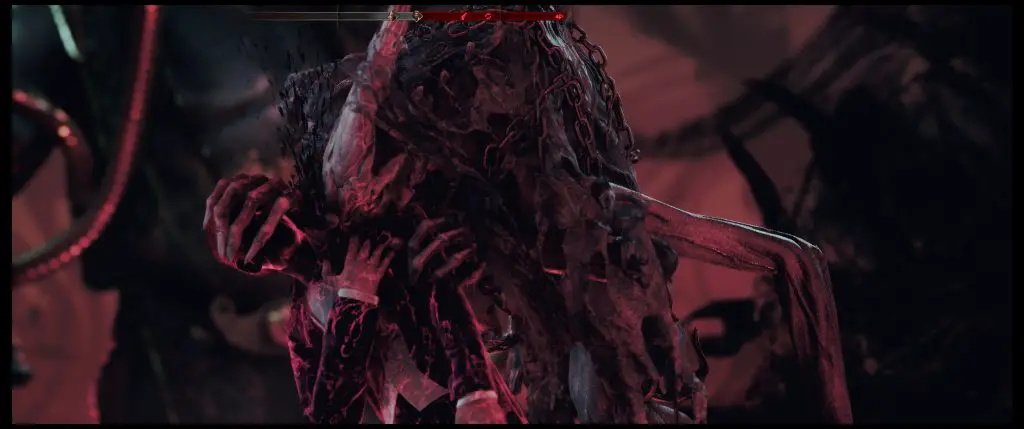
Conclusion
With all that being said, now is the time where we decide if The Thaumaturge is worth picking up or leaving in the shadows with the salutors. Personally, I can’t find anything bad to say about the game. I think it was one of the most enjoyable games I have played in a long time. It will definitely be on my top 5 list for 2024.
The story was very well written. The voice acting was all well done. Like I mentioned before, the main focus of The Thaumaturge, at least to me, was on the story and you can see the love and passion put into it. However, the combat system was just as good. I very much enjoyed the mechanics of the turn-based system. All of the mini-cinematic combat animations were always a joy to watch. They just looked so good. I enjoyed being able to update my abilities on the fly before each combat. Having a timeline to manipulate is always a nice feature for me. I enjoy finding combos between Wiktor and the salutors to negate enemy attacks or even knock them out completely.
If you are a fan of story-driven role-playing games and are looking for a great new character to play as, then make sure you give The Thaumaturge a go. If you are a fan of turn-based games, which is probably why you are here, then don’t sleep on The Thaumaturge. Obviously, if you like both, then you are going to be as happy as I was to find such a gem.
You can find The Thaumaturge on Steam, EPIC, and GOG.
The review key for this game was generously provided by the developers at Fool’s Theory.

